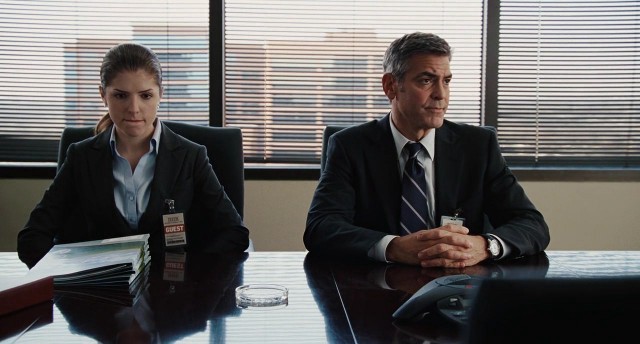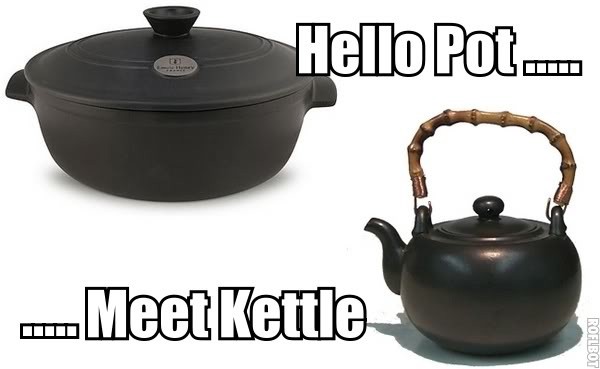The Tempestuous Relationships Between Millennials And Their Employers

Your tolerance for the following open letter, which appeared in Forbes, explaining why Millennials keep quitting their jobs, will depend a lot on a) how you feel about open letters, and b) how you feel about Millennials who play to type. In the ongoing struggle between Millennials and their bosses, with whom do you identify?
You hired us thinking this one might be different; this one might be in it for the long haul. We’re six months in, giving everything we have, then suddenly, we drop a bomb on you. We’re quitting.
We know the stereotypes. Millennials never settle down. We’re drowning in debt for useless degrees. We refuse to put our phone away. We are addicted to lattes even at the expense of our water bill. Our bosses aren’t wrong about these perceptions. But, pointing our sometimes irresponsible spending and fear of interpersonal commitment isn’t going to solve your problem. You still need us.
The Millennial behind this letter, Elizabeth McLeod, daughter of Forbes contributor Lisa Earle McLeod, lays out several reasons why Millennials give up on their jobs after, say, six months. They are apparently dispirited by the fact that their jobs “tolerate low performance,” focus too much on ROI, “confuse culture with collateral” (I’m not 100% sure what that one means, although in context, it seems to be about offering workers free Panera instead of purpose), and treat employees like cogs.
Not surprisingly, the letter engendered some less-than-kind responses. “Dear Millennials: Stop Whining And Do Your Jobs” is the title of one counterpoint in The Federalist. (I wonder if anyone ever, in the history of space and time, heard the words, “Stop whining,” and thought, “My God, you’re right, I was whining, and I should stop! Thanks!”)
Anyway, here’s the take of that 31-year-old author who doesn’t want to be a traitor to his generation or anything but clearly identifies with management:
You hired us thinking this one might be different; this one might be in it for the long haul.
No, we didn’t. We hired you because we decided to prioritize your cheap price tag and theoretical trainability over an older, more experienced (and expensive) worker.
We’re six months in, giving everything we have, then suddenly, we drop a bomb on you. We’re quitting.
That’s a shame. Best of luck. Don’t worry about us, though. We’ll likely have the position filled in a week or two. Remember to turn in your ID badge and parking pass.
We know the stereotypes. Millennials never settle down. We’re drowning in debt for useless degrees. We refuse to put our phone away. We are addicted to lattes even at the expense of our water bill.
You forgot “we’re way too sensitive to even mild criticism.”
Our bosses are not wrong about these perceptions.
We know. …
I was raised to believe I could change the world.
Sorry about that.
Yikes! Better get some aloe for that burn.
The National Review similarly encourages the original author to “give humility a try.” Which is kind of rich, coming from the guys at the National Review.

There’s a more sensitive, less snarky response on Medium too that’s worth reading:
As a millennial myself, and as someone who hasn’t stayed with one company longer than 3 years in my career, I relate to wanting to be on an amazing team with inspiring leaders. I yearn for more company culture and engagement than a monthly free lunch. I want to constantly be challenged. I get bored easily, and yes, after 1–2 years, am ready for a change.
The only problem with her letter is: she’s wrong. Dead wrong. Not on describing millennials, but rather on the idea that somehow us millennials deserve to have these things and that we don’t have to work for them. That somehow after just months in the workforce, we immediately expect to have a job that is exciting, engaging and fulfilling. …
We need to stop expecting fulfillment from our jobs and instead make our jobs what we want them to be. If the team you’re on isn’t the A-team you want it to be, make it into your dream team. If your company’s culture isn’t as engaging as you dreamed it would be, start something within your organization that propels it to becoming your dream company culture.
Be the change, is what I guess he’s saying. Surely that’s advice a Millennial can understand.
To some degree, I think McLeod may deserve her critical reception; her letter is neither terribly well-written nor well-thought-out, and it plays right into the hands of those who dismiss young workers as GYPSY unicorns. (Her mother, who gave her the platform, also bears some responsibility.) But I wince at the patronizing tone these men — and yes, they’re all men — use in their replies to her. She made herself an easy target, sure. But they gleefully fired at her with the equivalent of an Uzi in both hands.
Besides, if her critics want me to take them seriously, I need to know how long they stayed at their first jobs. Did they stick it out for at least a year or two? Or did they themselves move on more quickly than they expected to, perhaps for some of the reasons McLeod articulates? Fair’s fair, guys. She was being honest. Now it’s your turn.
And yours too, my fair readers! How long did you stay at your first job?
Support The Billfold
The Billfold continues to exist thanks to support from our readers. Help us continue to do our work by making a monthly pledge on Patreon or a one-time-only contribution through PayPal.
Comments